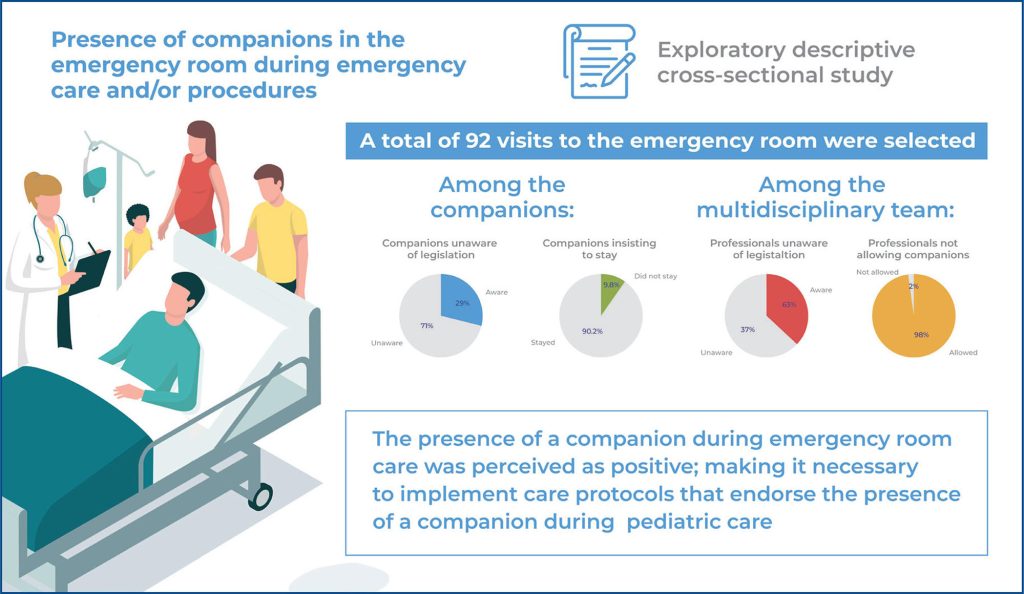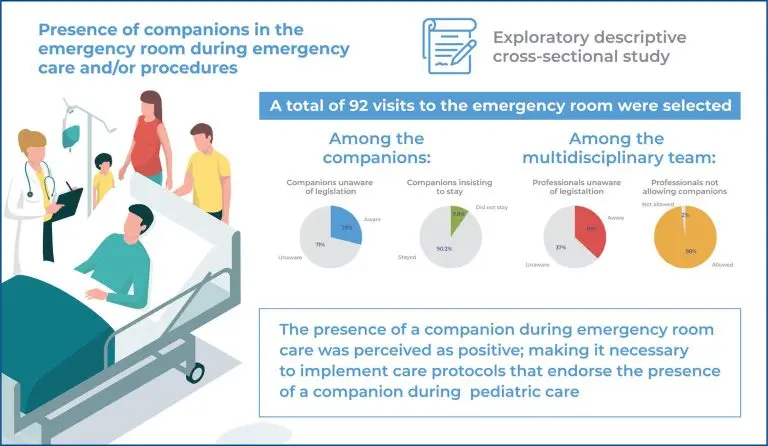einstein (São Paulo). 10/jun/2025;23:eAO0871.
Perception of the multidisciplinary team and the patient’s family companion regarding their presence during emergency room care
DOI: 10.31744/einstein_journal/2025AO0871
Highlights
■ Family presence improves communication and patient comfort during pediatric emergency room care.
■ Overall, 90.2% of companions stayed during care, despite 71% being unaware of the legislation.
■ Of the professionals, 96% allowed companions, with 87% citing comfort for patients.
■ This study supports creating clear protocols for family inclusion during emergencies.
ABSTRACT
Objective:
To evaluate the perceptions of family companions and the professional team regarding the presence of a family member during emergency and urgent care at a tertiary pediatric hospital.
Methods:
This exploratory, descriptive cross-sectional study was conducted at a tertiary pediatric hospital that mandated the presence of companions in the emergency room during emergency care and/or procedures. The researcher conducted interviews after emergency care and administered questionnaires to the participants.
Results:
Ninety-five emergency room visits were selected, resulting in 92 interviews with companions and 148 interviews with multidisciplinary team members. Of the companions, 71% were unaware of the legislation regarding their presence. Despite their lack of knowledge, 90.2% insisted on accompanying the patient. Of the multidisciplinary team members, 37% were unaware that the patient could be accompanied to the emergency room, and 2% reported not allowing a companion in the emergency room. Nevertheless, 87% of the team agreed that the companion comforted the patient during care in the emergency room.
Conclusion:
Results from both companions and health professionals perceive the companion’s presence during emergency room care as positive, making it necessary to implement care protocols that supports a companion’s presence during pediatric care.
[…]
166



